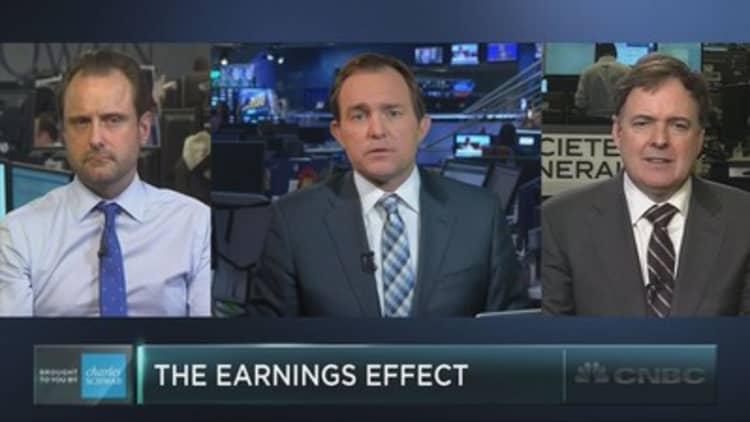


The recent run in crude oil may not be enough to energize investors about the stocks it impacts most.
As the price of oil has risen 14 percent in one week, the energy sector has rallied 6 percent in the same time. However, the options market suggests that investors remain nervous about energy stocks, considerably more so than any other group in this year's broad market selloff.
"Everybody is an oil expert right now — people have reasons for why it's going up, people have reasons for why it's going down. But where they really express it is by buying options on the [energy sector ETF] XLE and on crude oil," Dennis Davitt of Harvest Volatility Advisors said Thursday on CNBC's "Power Lunch."
Comparatively, the implied volatility for XLE is more than 60 percent higher than it is for SPY, the ETF that tracks the S&P 500. Investor nervousness around crude oil seems even more extreme, with oil's implied volatility at almost triple that of the SPY. Implied volatility is a measure that uses options prices to track the magnitude of expected moves (especially to the downside) for a given stock or ETF.
"There's a great deal of uncertainty in the actual oil commodity that's flowing into the energy stocks, which also then in turn flows into the S&P 500," Davitt said Thursday.
In January, crude oil dropped below $27 a barrel to its lowest level since 2003. But recently the commodity has pared its deep losses, spurred by reports that Russia and Saudi Arabia may arrive at a deal to cut production in a market awash with supply.
Read More Chances of OPEC, Russia oil deal slim to none
Still, Gina Sanchez of Chantico Global remains skeptical that an output cut will be much help to the price of oil in the near term.
"Everybody assumes that if you cut supply we should see oil rise back up quickly, and the reality is there's so much oil out there and demand is so low, the demand problem has really exacerbated this," Sanchez said Thursday in a "Trading Nation" segment. "So while you may think that oil may come up, this pig is not even halfway through the python in terms of oversupply."
Want to be a part of the Trading Nation? If you'd like to call in to our live Wednesday show, email your name, number and a question to TradingNation@cnbc.com.





